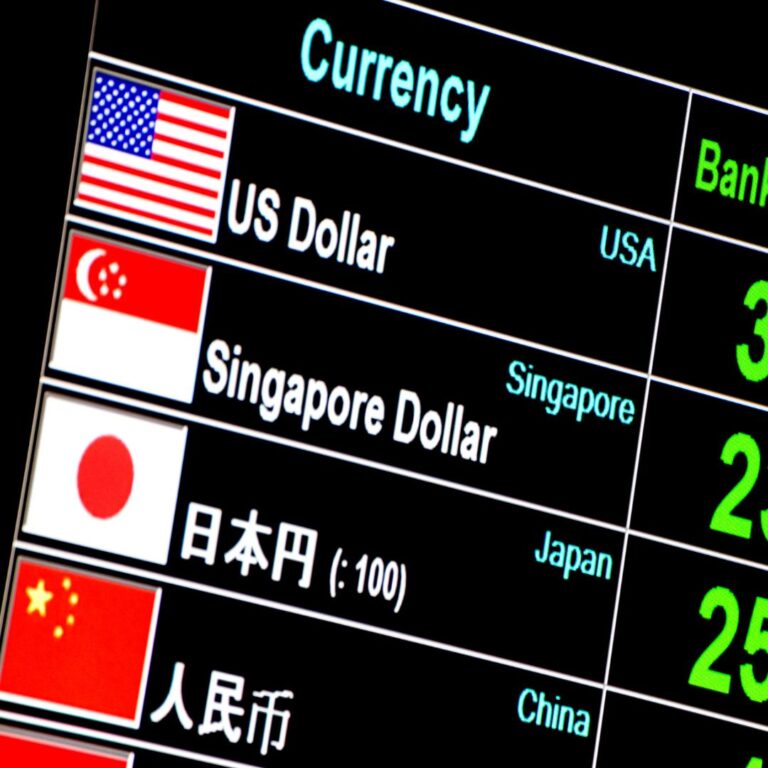Fiqh & Shariah
Fiqh is known to be very flexible when it comes to the Shariah. The messenger of Allah ﷺ was narrated to have said:
مَنْ يُرِدِ اللَّهُ بِهِ خَيْرًا يُفَقِّهْهُ فِي الدِّينِ وَإِنَّمَا أَنَا قَاسِمٌ وَاللَّهِ يُعْطِي
“When God wishes good for anyone, He instructs him in the religion. I am only a distributor; God gives.” (Bukhari and Muslim, Mishkat al-Masabih 200)
Allah bestows the gift of Fiqh upon those He wishes well, not arbitrarily but with a purpose. These individuals are chosen to guide and assist thousands in discerning between halal (permissible) and haram (forbidden) in their daily activities and interactions.
Wealth is the wealth of Allah
Allah has entrusted us with a share of His wealth. While some may perceive Zakat as a donation, it is, in fact, a mandatory duty for Muslims to provide Zakat to its beneficiaries. The wealth does not belong to the holder but Allah, making it an obligation to distribute it among the less fortunate. This is reflected in the verse of the Quran:
خُذْ مِنْ أَمْوَٰلِهِمْ صَدَقَةًۭ تُطَهِّرُهُمْ وَتُزَكِّيهِم بِهَا وَصَلِّ عَلَيْهِمْ ۖ إِنَّ صَلَوٰتَكَ سَكَنٌۭ لَّهُمْ ۗ وَٱللَّهُ سَمِيعٌ عَلِيمٌ ١٠٣
Take from their wealth ˹O Prophet˺ charity to purify and bless them, and pray for them—surely your prayer is a source of comfort for them. And Allah is All-Hearing, All-Knowing.
The term ” خُذْ”, representing a command in Arabic and also signifying the action of taking, implies that if this verse were not presented as a command, people might not willingly contribute to charity. However, framing it as a directive emphasizes that withholding wealth from charitable acts constitutes a betrayal of Allah’s trust.
Islamic Finance helps us through the developments of the world
Islamic Finance is designed to be adaptable, all-encompassing, and responsive. Within this framework, dynamism pertains to the obligation of Fiqh scholars to comprehend the evolving needs of society and formulate solutions to address them. Despite the complexity of sometimes determining whether an object is halal or haram, Allah has mentioned in the Quran:
…وَقَدْ فَصَّلَ لَكُم مَّا حَرَّمَ عَلَيْكُم
He has already explained to you what He has forbidden to you..(6:119)
Additionally, the prophetic narration reinforces this aspect:
الْحَلاَلُ بَيِّنٌ وَالْحَرَامُ بَيِّنٌ وَبَيْنَ
The lawful is clear, and the unlawful is clear… (Jami` at-Tirmidhi 1205)
In financial transactions, Allah allows us to innovate and employ new products for our benefit, avoiding anything harmful to our well-being.
Principles of Maqasid Shariah (objectives of Shariah)
There are five maqasid of Shariah, which serve as fundamental objectives:
- Protection of life (Hifzun Nafs)
- Protection of religion (Hifzun Deen)
- Protection of dignity/family (Hifzun Nasb)
- Protection of wealth (Hifzun Mal)
- Protection of intellect (Hifzun Aql)
Every activity undertaken as a Muslim aligns with this maqasid. For example:
- Prayer corresponds to the Protection of religion.
- Marriage and progeny contribute to the Protection of dignity/family.
- Reading supports the Protection of intellect.
Notably, the topmost priority is the Protection of life. This necessitates avoiding actions that jeopardize one’s life, as emphasized in the Quran:
وَلَا تُلْقُوا۟ بِأَيْدِيكُمْ إِلَى ٱلتَّهْلُكَةِ
“And do not throw yourselves with your own hands into destruction” (Quran 2:195).
Examples include refraining from reckless driving, ensuring adequate rest, and avoiding behaviours compromising personal and others’ well-being.
Circulation
Wealth should be actively invested and not left stagnant (avoid negative savings); it must circulate, as emphasized by the teachings of Prophet Muhammad (ﷺ):
أَلاَ مَنْ وَلِيَ يَتِيمًا لَهُ مَالٌ فَلْيَتَّجِرْ فِيهِ وَلاَ يَتْرُكْهُ حَتَّى تَأْكُلَهُ الصَّدَقَةُ
‘As for one who is the guardian of an orphan with wealth, let him engage in business with it and not leave it until it is consumed by charity. (Mishkat al-Masabih 1789)
Additionally, if wealth remains static and doesn’t grow, it will decline due to Zakat.
Promoting the circulation of wealth involves participating in partnerships rather than monopolizing, as monopolization restricts its flow to only the affluent. To generate more opportunities, there must be a continuous circulation of wealth.
The verse in the Quran, “so that wealth may not merely circulate among your rich” (59:7), underscores the importance of preventing wealth from being concentrated solely among the wealthy.”
Justice:
Why does Islam prohibit Riba? In conventional borrowing, if someone cannot repay, they are obligated to settle not only the principal but also the interest and penalties. This implies that while amicable during prosperous times, the creditor can resort to legal and enmity measures in case of default.
Islam encourages mutual joy and sorrow, emphasizing justice and fairness. Riba is deemed unjust as it neglects to consider the challenges or sorrows resulting from an individual’s actions and intentions.
Clarity
In business, defining equitable profit-sharing arrangements is essential. Engaging in gambling, a zero-sum game, is prohibited in Islam due to the lack of a mutually beneficial outcome. The disapproval of bay al gharar, such as selling items beyond one’s control (e.g., a bird in the sky), falls within this context.
The scholarly discourse on Cryptocurrency revolves around concerns like password retrieval. Scholars await official state endorsement before supporting crypto investments, emphasizing caution in ambiguous and undefined financial ventures.
Sustainability and stability
Invest in assets with lasting value, such as real estate and long-lasting commodities, to ensure sustainable returns.
Ijtihad
Ijtihad is a tool for scholars to utilize following the guidance of the Quran, Sunnah, and Ijma’. When Prophet Muhammad dispatched Muaz to Yemen, he inquired how Muaz would adjudicate when faced with a case. Muaz responded that he would judge in accordance with Allah’s Book. When asked about the absence of guidance in the Book, he affirmed his commitment to the Sunnah of the Messenger of Allah (ﷺ). Further questioned about the absence of guidance in both the Book and Sunnah, Muaz asserted his determination to exert maximum effort to form an opinion.
The Messenger of Allah (ﷺ) then commended him, saying, “Praise be to Allah Who has helped the messenger of the Messenger of Allah to find something pleasing to the Messenger of Allah.” (Sunan Abi Dawud 3592)
In situations where Quran, Sunnah, and Ijma’ provide no guidance, resorting to Ijtihad becomes imperative, as it played a role even during Umar’s time, such as in the case of solat tarawih.
Ijtihad, a blessing for Islam, has given rise to multiple schools of thought. However, its practice should be confined to those duly qualified, akin to the legal field where training is a prerequisite. Through Ijtihad, Islam remains relevant, adaptive to contemporary times, and capable of navigating the complexities of the modern world. A mujtahid should embody relevance, dynamism, open-mindedness, contribution, progressiveness, and dynamism.
Warning against the convenience of “fatwa shopping,” scholars should engage in collective Ijtihad enriched with maqasid. This collective Ijtihad is needed more than ever considering the new and difficult challenges we face. While scholars may err on their ruling, embracing collective Ijtihad to reduce such errors is vital, as a wrong fatwa issued is likened to a wrong medicine. The Prophet ﷺ was narrated to have said:
يَدُ اللَّهِ مَعَ الْجَمَاعَةِ
“Allah’s Hand is with the Jama’ah” (Jami` at-Tirmidhi 2166)
While new challenges to our Muslim community are coming at a faster rate, it is essential to preserve the methodological steps in making a fatwa from Ijtihad and not rush. Ijtihad is supposed to be slow but sure, dynamic but careful, progressive but realistic.
Conclusion:
In essence, Fiqh, marked by its flexibility within Shariah, plays a crucial role in guiding Muslims in distinguishing between permissible and forbidden actions, with the divine distribution of Fiqh underscoring its significance. Wealth, viewed as Allah’s trust, necessitates the obligatory duty of Zakat for just distribution, as emphasized in the Quran. Islamic Finance, adapting to evolving needs and aligned with Maqasid Shariah objectives, encourages investments for active wealth circulation and upholds principles of justice. Clarity in profit-sharing arrangements, avoidance of ambiguous ventures, and caution in engaging with evolving financial tools reflect Islamic values. As exemplified by Muaz’s response, Ijtihad ensures Islam’s adaptability in situations lacking explicit guidance, with collective Ijtihad urged to address contemporary challenges. In conclusion, a cautious and informed approach is essential, mirroring fatwa creation’s slow, dynamic, and progressive nature and financial decisions in line with Islamic teachings.
Prof.Dr.Koutoub Moustapha
H.E Prof. Dr. Koutoub Moustapha Sano is the Secretary-General of the International Islamic Fiqh Academy (Majma’ al-Fiqh al-Islami al-Duwali), board member of the Muslim Council Elders, and the Co-President for Religions for Peace. He has published several outstanding research papers, and is the author of over twenty-five published books.
Dr. Sano was a university professor and trustee of the International Islamic University of Malaysia (IIUM), founding director of the International Institute for the Unity of the Islamic Nation in Malaysia, and chairman of the Shariah Council of Islamic Banks and Financial Institutions. He served as the Minister of Religious Affairs, Minister of International Cooperation and African Integration, Minister of Diplomatic Affairs in the Office of the President, and Diplomatic Advisor to the President in the Republic of Guinea.
Dr. Sano obtained his degree with first class honours in Jurisprudence and its Fundamentals and his magister degree with a mention of excellence in the Fundamentals of Jurisprudence from King Saud University in Saudi Arabia. He received a PhD in Law (subspecialty in Fundamentals of Jurisprudence) with distinction and a postgraduate degree in Islamic Finance and Banking from IIUM Centre for Economics, and a PhD in Islamic Sciences (Islamic Finance) with a very honorablehonourable distinction from the Higher Institute of Theology of Al-Zaytuna University, Tunis.








